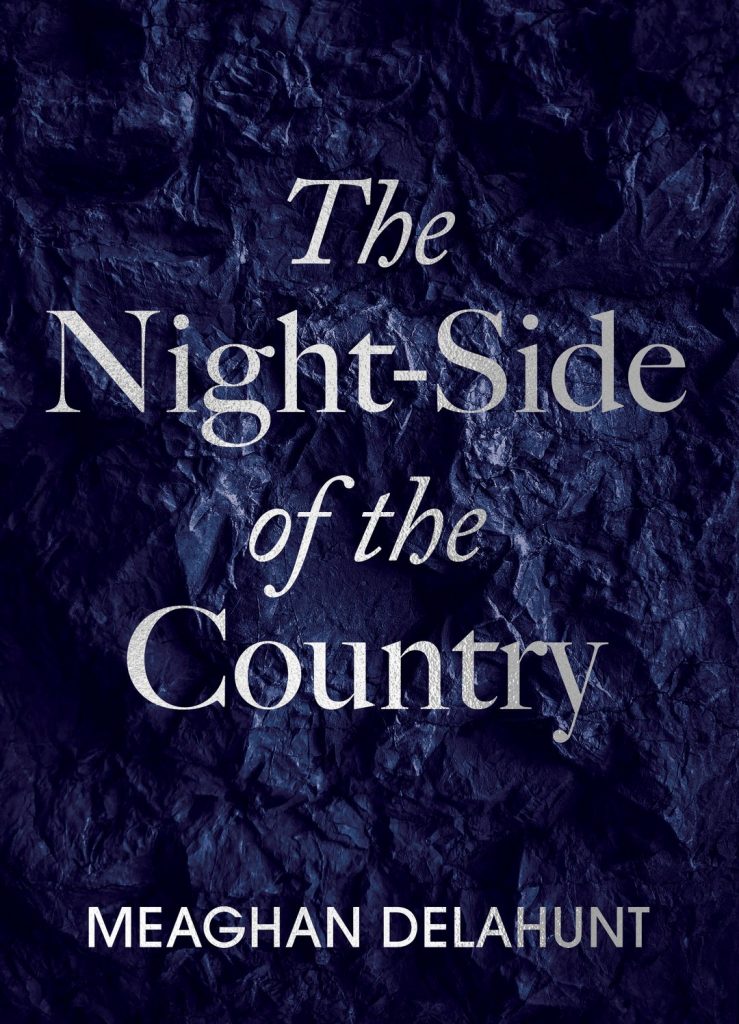The Night-Side of the Country
Meaghan Delahunt
(UWA Publishing, 2020); pbk, $24.99
Some books lead readers gently by the hand and others push them in at the deep end. In her latest novel, The Night-Side of the Country, Meaghan Delahunt opens with a standalone sentence designed to launch you firmly into the post #metoo waters: ‘The days drew in and the men fell hard.’ From that moment on, the novel delivers a highly charged and fast paced read.
From contemporary trauma and gender violence to truth-speaking and silencing, there is much to unpack. The central character, M, loses her psychological balance after constant press coverage of violence against women reignites her buried trauma. By speaking out she faces new consequences, including a threat of litigation and professional disruption at The Institution. Finding it impossible to continue writing, M escapes to an island where her intellectual interplay with a woman known as B redresses her thinking. In an example of the novel’s willingness to be playful with form, B is never confirmed as real or fictitious. Regardless, her truth is one of having spoken out against the violence within a political organisation – ‘The Movement’ – and the watchful state of exile this has left her in. Through this meeting of minds M and B forge a different story.
This act of co-creation between writer and character is empowering. Delahunt uses it to comment on the nature of fiction and the reception that women’s truths often receive. M has already urged ‘Believe me, the women in this story are the most reliable narrators you will ever come across.’ before B later asserts that ‘The know-all narrator, he’s had his day. His time is done.’ By fusing memoir and essaying with fiction, Delahunt weaves together recollections and conversations to create layers of truth that undermine the notion that unreliable narration stems from gender.
The use of anonymity simultaneously provides privacy to the two women while reducing the power of the men and organisations which seek to control and silence them. The ‘Man from HR’ nods towards all those complicit in enabling and covering for those who behave badly. If ‘W’ is taken as code for Weinstein, the first of the felled men, then the use of ‘X’ for the men that come after allows personal experiences to be transposed into the reading. After all, ‘every woman knows an X’.
Throughout, Delahunt pushes the use of you and I to test how interchangeable they can be when revealing or relating to stories of gender violence:
The driver waiting, the engine on idle. And the fear of what could’ve happened. If it can happen to the I, it can certainly happen to the you. Perhaps it already has. Perhaps it will happen again.
In this way, parts of the book can be an uneasy read. You are asked to confront your experiences and knowledge of abuse in a patriarchal society, but also your complicity in the acceptance of it. The language of #metoo is reinforced with terms like triggered, predatory, groomed, gaslighting; these feel current and essayistic when worked into literary fiction. Delahunt also creates powerful new refrains: the felled men, the boot in the neck, the driver that always has an accomplice. From the beginning the novel draws strands of truth together and condemns society’s acceptance of the unacceptable:
You listen to these other women, some famous and others not famous at all and see that it’s no longer about the one woman. No. The one voice now harmonises with the many to form a strange music. Those who hear it for the first time shake their heads and ask themselves, as if woken from a trance – why did we not hear this before?
Delahunt pulls no punches with this account of trauma and healing. Nor should she. By questioning who gets to tell stories in a #metoo era, how they are narrated, and whether you is really I, we step closer to understanding contemporary female experience and the power in collective accounts of abuse and misogyny. Much like being pushed in the deep end of a pool, this novel plunges into the depths below while striving for the air above.
Hannah Whaley


After reading this, I am going to be reading The Night-side of the Country! Thank you!